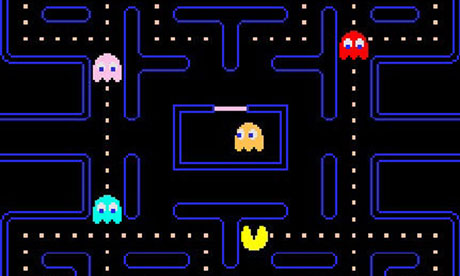Schoolification
/ I have been thinking about gamification a lot lately. I teach a really big class full of energetic undergraduates, and I want to make the class better. It is already pretty darn good, but there is always room for improvement. One way to do this is to add game elements to some of the more mundane aspects of the course.
I have been thinking about gamification a lot lately. I teach a really big class full of energetic undergraduates, and I want to make the class better. It is already pretty darn good, but there is always room for improvement. One way to do this is to add game elements to some of the more mundane aspects of the course.
As an aspiring Teaching and Learning scholar, I dug into the literature on gamification and game-based learning (and trust me, there is A LOT of it!) to investigate possible frameworks and suggestions for a successful implementation of game-based learning. One framework that has been really helpful for me as I plan some game-based elements into my course was proposed by Bunchball, a corporate gamification company. As stated in one of their white papers, there are 6 elements that serve as the building blocks to all successful games. Coincidentally, these game elements interact with game dynamics that are associated with basic human desires that tend to motivate and engage people within a gaming experience.
[table id=1 /]
When I look at this table, I see many similarities and natural applications to education. The way the education system is currently structured, there is already a pretty heavy dose of competition, achievement, reward, and status. There is also some possibility for self-expression and altruism, depending on the way a course is set up. So, I understand that education and gamification go hand-in-hand quite naturally.
So what happens when an instructor takes activities that students might naturally enjoy and make them just another assignment? I call this "schoolification," which is when a teacher deflates student interest in an activity or project by assigning points, a grade, or any other requirement that students might otherwise resist.
The first time I encountered schoolification, before I even had a name for it, was in a conference presentation where a professor described his use of Facebook in his classes. Each student in the class had to join his group on FB, they were required to comment on his posts, and they would "lose points" if they didn't do either of those things. My first thought was, wow, that's a great way to make students hate Facebook. Take something they like, make them use it in a way they don't want, then hold their grade over their head of they don't do it.
If the instructor is not careful, I think the same thing can happen with blogs, digital stories, flipped lessons, and cooperative learning (or any other activity for that matter). Students have to be held accountable for their professionalism, but how do we do this without schoolifying activities they might otherwise enjoy? This is a challenge I would like to learn more about.
How do you hold students accountable for their participation in class activities without schoolifying those activities that are intended to be engaging and fun.

